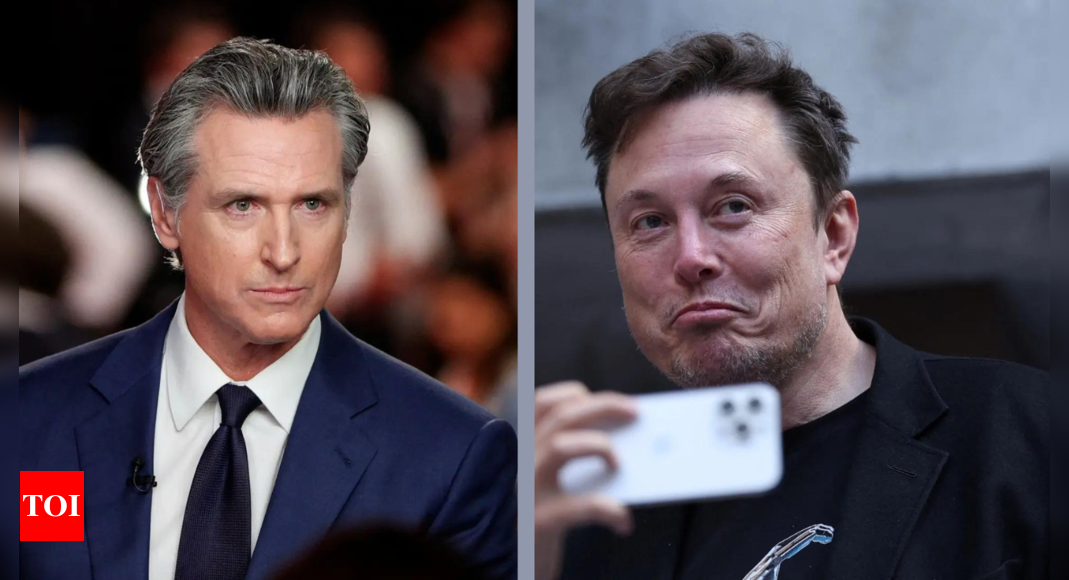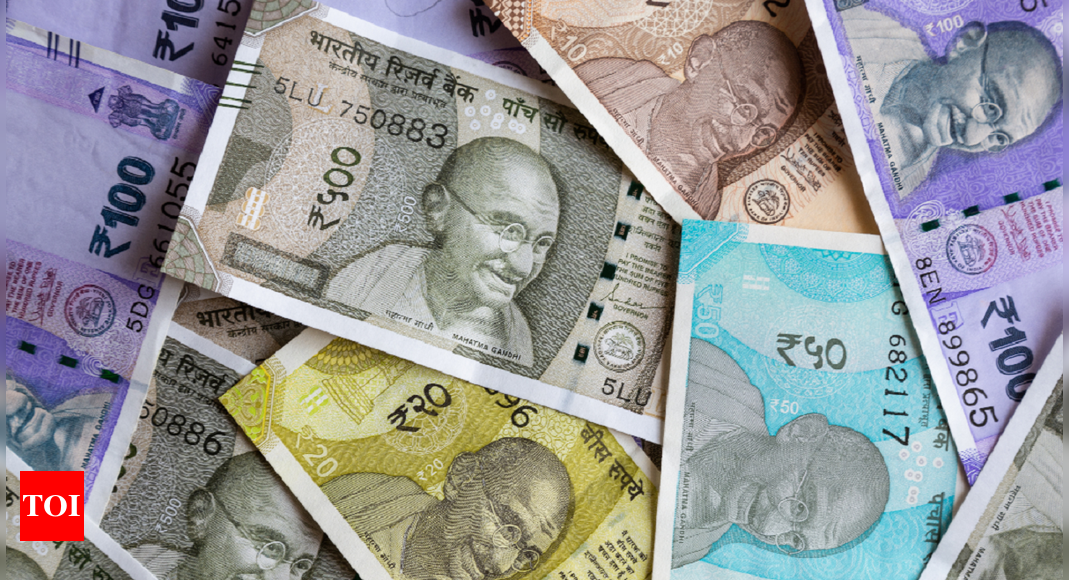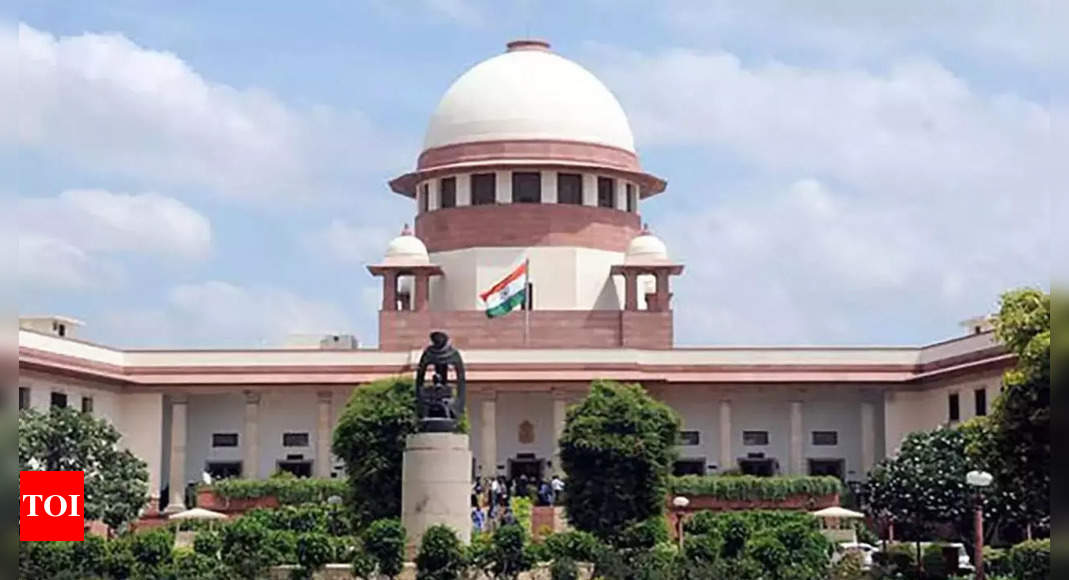
California Governor Gavin Newsom signed a series of bills on Tuesday banning political “deepfakes” and other misleading digitally generated audio and visual content created with artificial intelligence, fulfilling his promise to take action after criticising Elon Musk, CEO of X (formerly Twitter), for sharing a doctored video of Vice President Kamala Harris.
“I could care less if it was Harris or Trump,” Newsom said during a conversation with Salesforce CEO Marc Benioff earlier the same day.“It was just wrong on every level, “ Politico reported.
Elon Musk in response to Newsom’s signing of the laws, claimed that the governor had effectively made parody illegal, in violation of the Constitution of the United States.
He shared a video featuring a satirical depiction of Harris, mocking her qualifications and making sarcastic comments about diversity hiring and political competence. The video imitates Harris’s voice, but instead of using her actual words from the original ad, it falsely portrays her saying that President Biden is senile, that she doesn’t “know the first thing about running the country.”
The AI-generated video included statements such as, “I was selected because I am the ultimate diversity hire. If you criticise anything I say, you’re both sexist and racist,” taking a jab at Harris.
Musk also reposted a viral post sharing the same video of Harris, stating, “The video that offended California Governor Gavin Newsom is now trending on X.”
“Like when Streisand sued someone for exposing her very obvious Malibu address. That really kept it under wraps, lmao,” Musk added.
Trump has also shared AI-generated images claiming to show his support among Black voters, along with another image depicting a figure resembling Kamala Harris addressing a group of communists, the fortune reported.
“Safeguarding the integrity of elections is essential to democracy, and it’s critical that we ensure AI is not deployed to undermine the public’s trust through disinformation – especially in today’s fraught political climate,” Newsom said in a statement.
“These measures will help to combat the harmful use of deepfakes in political ads and other content, one of several areas in which the state is being proactive to foster transparent and trustworthy AI,” he added.
What are deepfakes
Deepfakes are “highly realistic and difficult-to-detect digital manipulations of audio or video.” The term is a blend of “deep learning” and “fakes,” reflecting the combination of advanced machine learning techniques used to create convincing yet deceptive digital content.
What are the 3 bills
Under Assembly Bill 2355, political advertisements will be required to disclose whether they have utilised generative AI technology to create or modify any materials featured in the ad. This measure aims to ensure that voters are aware of the use of AI in political messaging.
Assembly Bill 2655 places the responsibility on large online platforms to remove or label deceptive election content within 72 hours of receiving a report from a user. Failure to comply with this requirement will result in liability for the platform.
“AI-generated deepfakes pose a clear and present risk to our elections and our democracy. AB 2655 is a first-in-the-nation solution to this growing threat, and I am grateful to Governor Newsom for signing it. Advances in AI over the last few years make it easy to generate hyper-realistic yet completely fake election-related deepfakes, but AB 2655 will ensure that online platforms minimize their impact.The new law is a win for California’s voters, and for our democracy,” Assemblymember Marc Berman, who proposed the bill, said in the statement.
Lastly, Assembly Bill 2839 specifically targets individuals who create or publish deceptive content about candidates and election workers using AI technology. The bill prohibits such actions within the 120 days before and 60 days after an election. If found in violation, a judge can order the removal of the content and impose a fine.
Why is the ban important
These measures are designed to enhance transparency and accountability in the digital realm, particularly during election periods.
Titled the Defending Democracy from Deep Fake Deception Act, the recently introduced legislation mandates major online platforms to prevent users from sharing “materially deceptive” content related to elections as Californians gear up to exercise their right to vote.
The rapid advancement of AI has raised various apprehensions, including its potential to interfere with democratic processes, amplify fraudulent activities, and lead to job losses.
These concerns have prompted lawmakers to take action and implement measures to counter the negative impacts of AI.
The Biden administration, led by the Democratic president, has advocated for the regulation of artificial intelligence. However, the divided Congress, with the House of Representatives controlled by Republicans and the Senate by Democrats, has struggled to make significant progress in implementing effective AI legislation.
California is the first state in the country to establish legal protections for performers against AI technology. Tennessee, renowned as the birthplace of country music and the launching point for many musical icons, took the lead in March by passing legislation to shield musicians and artists from AI misuse.
“I could care less if it was Harris or Trump,” Newsom said during a conversation with Salesforce CEO Marc Benioff earlier the same day.“It was just wrong on every level, “ Politico reported.
Elon Musk in response to Newsom’s signing of the laws, claimed that the governor had effectively made parody illegal, in violation of the Constitution of the United States.
He shared a video featuring a satirical depiction of Harris, mocking her qualifications and making sarcastic comments about diversity hiring and political competence. The video imitates Harris’s voice, but instead of using her actual words from the original ad, it falsely portrays her saying that President Biden is senile, that she doesn’t “know the first thing about running the country.”
The AI-generated video included statements such as, “I was selected because I am the ultimate diversity hire. If you criticise anything I say, you’re both sexist and racist,” taking a jab at Harris.
Musk also reposted a viral post sharing the same video of Harris, stating, “The video that offended California Governor Gavin Newsom is now trending on X.”
“Like when Streisand sued someone for exposing her very obvious Malibu address. That really kept it under wraps, lmao,” Musk added.
Trump has also shared AI-generated images claiming to show his support among Black voters, along with another image depicting a figure resembling Kamala Harris addressing a group of communists, the fortune reported.
“Safeguarding the integrity of elections is essential to democracy, and it’s critical that we ensure AI is not deployed to undermine the public’s trust through disinformation – especially in today’s fraught political climate,” Newsom said in a statement.
“These measures will help to combat the harmful use of deepfakes in political ads and other content, one of several areas in which the state is being proactive to foster transparent and trustworthy AI,” he added.
What are deepfakes
Deepfakes are “highly realistic and difficult-to-detect digital manipulations of audio or video.” The term is a blend of “deep learning” and “fakes,” reflecting the combination of advanced machine learning techniques used to create convincing yet deceptive digital content.
What are the 3 bills
Under Assembly Bill 2355, political advertisements will be required to disclose whether they have utilised generative AI technology to create or modify any materials featured in the ad. This measure aims to ensure that voters are aware of the use of AI in political messaging.
Assembly Bill 2655 places the responsibility on large online platforms to remove or label deceptive election content within 72 hours of receiving a report from a user. Failure to comply with this requirement will result in liability for the platform.
“AI-generated deepfakes pose a clear and present risk to our elections and our democracy. AB 2655 is a first-in-the-nation solution to this growing threat, and I am grateful to Governor Newsom for signing it. Advances in AI over the last few years make it easy to generate hyper-realistic yet completely fake election-related deepfakes, but AB 2655 will ensure that online platforms minimize their impact.The new law is a win for California’s voters, and for our democracy,” Assemblymember Marc Berman, who proposed the bill, said in the statement.
Lastly, Assembly Bill 2839 specifically targets individuals who create or publish deceptive content about candidates and election workers using AI technology. The bill prohibits such actions within the 120 days before and 60 days after an election. If found in violation, a judge can order the removal of the content and impose a fine.
Why is the ban important
These measures are designed to enhance transparency and accountability in the digital realm, particularly during election periods.
Titled the Defending Democracy from Deep Fake Deception Act, the recently introduced legislation mandates major online platforms to prevent users from sharing “materially deceptive” content related to elections as Californians gear up to exercise their right to vote.
The rapid advancement of AI has raised various apprehensions, including its potential to interfere with democratic processes, amplify fraudulent activities, and lead to job losses.
These concerns have prompted lawmakers to take action and implement measures to counter the negative impacts of AI.
The Biden administration, led by the Democratic president, has advocated for the regulation of artificial intelligence. However, the divided Congress, with the House of Representatives controlled by Republicans and the Senate by Democrats, has struggled to make significant progress in implementing effective AI legislation.
California is the first state in the country to establish legal protections for performers against AI technology. Tennessee, renowned as the birthplace of country music and the launching point for many musical icons, took the lead in March by passing legislation to shield musicians and artists from AI misuse.









